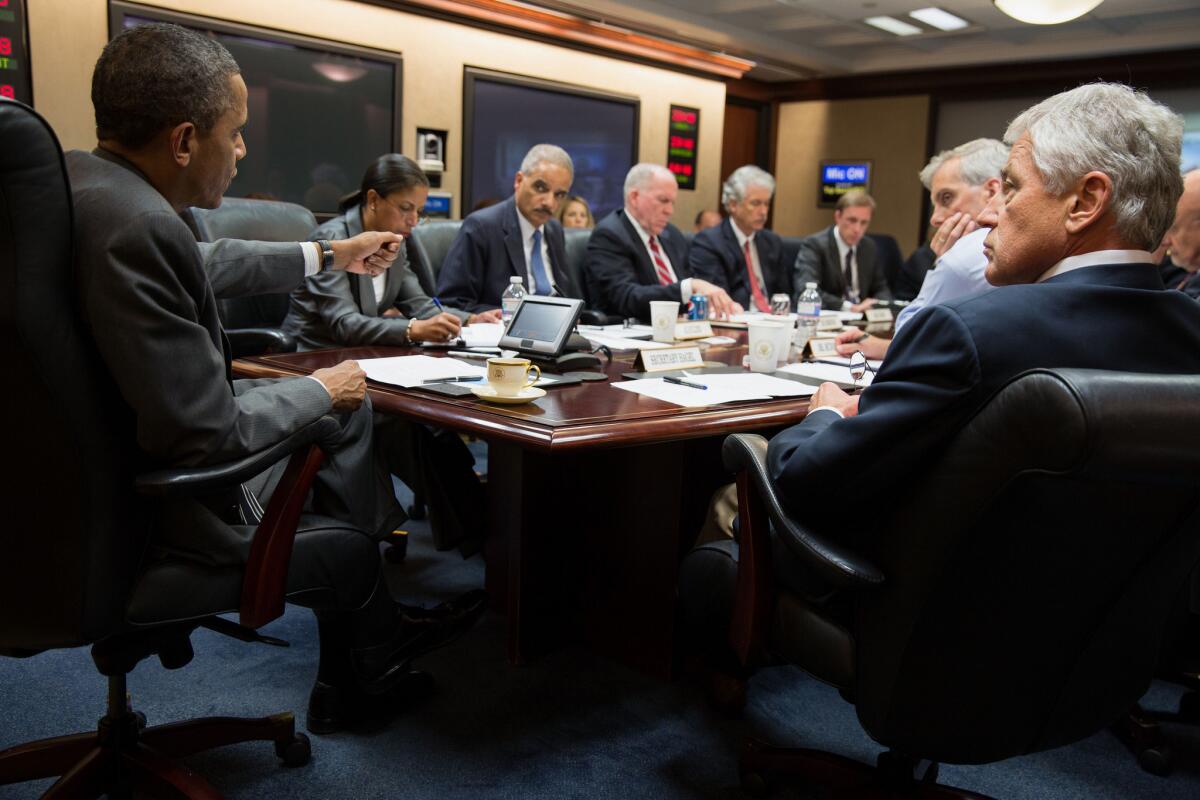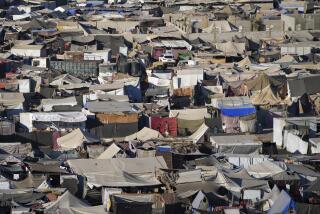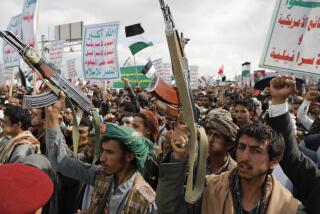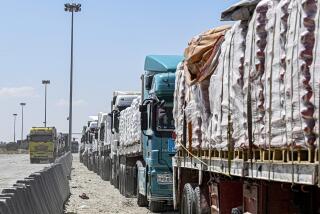Coup in Egypt raises doubts about U.S. policy

WASHINGTON -- The military overthrow of the democratically elected government in Egypt, for decades one of the United States’ most important Arab allies, has rekindled a fierce debate about whether the Obama administration’s Mideast policy has been too passive and ineffective.
President Obama declared that U.S. allegiance is to “democratic principles” after Egypt’s army toppled President Mohamed Morsi on Wednesday, but critics charge that the administration made only halfhearted attempts to steer Morsi’s increasingly authoritarian government toward democracy and respect for human rights.
Critics also say the White House has fallen short in leading international efforts to bolster Egypt’s collapsing economy, which has exacerbated the political instability there.
“They’ve been late, and slow, and not taken these problems seriously,” said Michele Dunne, a former State Department official and administration advisor on Egypt who heads the nonpartisan Atlantic Council’s Rafik Hariri Center for the Middle East.
The critics, who include Democratic foreign policy stalwarts as well as Republicans, say the upheaval in Egypt, on top of the administration’s inability to stem the civil war in Syria or convince Iran to curb its nuclear program, adds a blot to Obama’s foreign policy record.
They blame, in part, Obama’s desire to reduce America’s overseas commitments after a decade of war and his seeming efforts to pull back from a leadership position and take more of a supporting role in the region.
In their defense, administration officials say the United States has limited influence in Egypt’s domestic affairs and that visible efforts to apply pressure can backfire.
They say they have been engaged with key political players but have often kept their diplomacy quiet and out of sight to avoid inflaming a polarized political environment.
ALSO:
Top South Africans call on Mandela family to reconcile
Intrepid beachgoers frolic as algae bloom engulfs China’s coast
Pope issues his first encyclical; John Paul II cleared for sainthood
More to Read
Sign up for Essential California
The most important California stories and recommendations in your inbox every morning.
You may occasionally receive promotional content from the Los Angeles Times.











